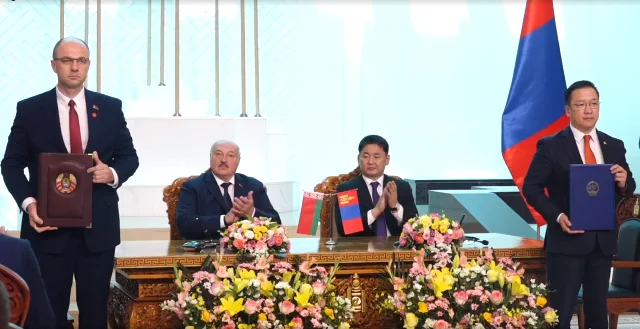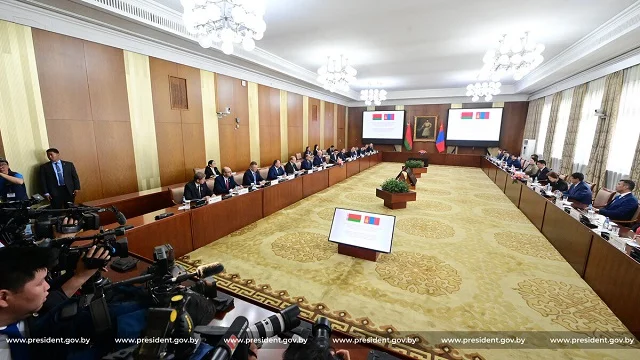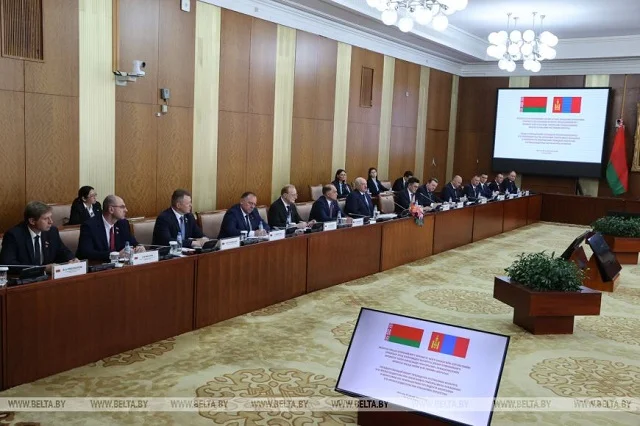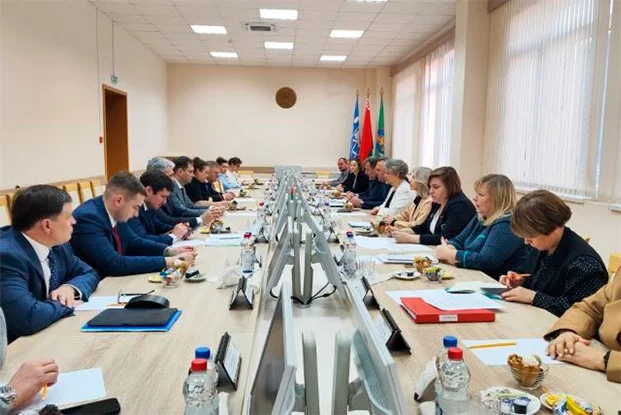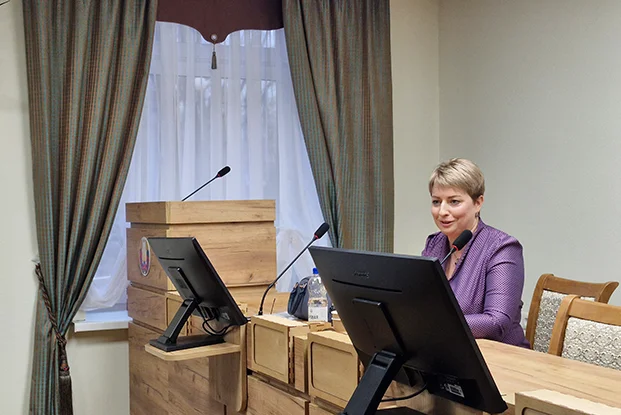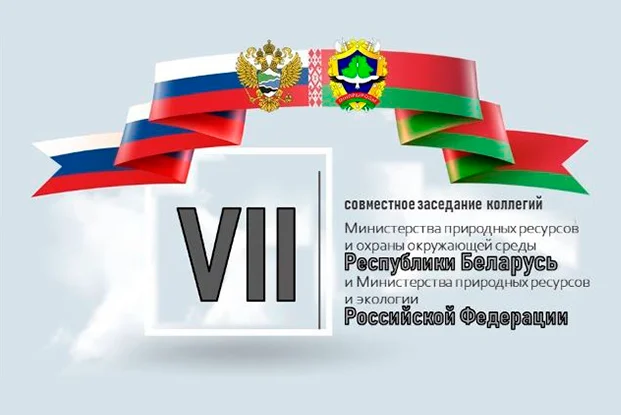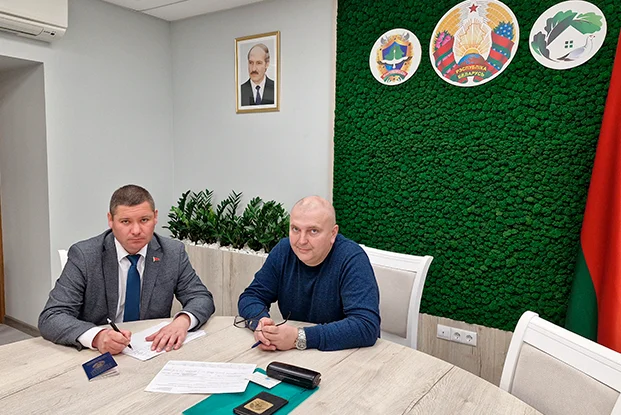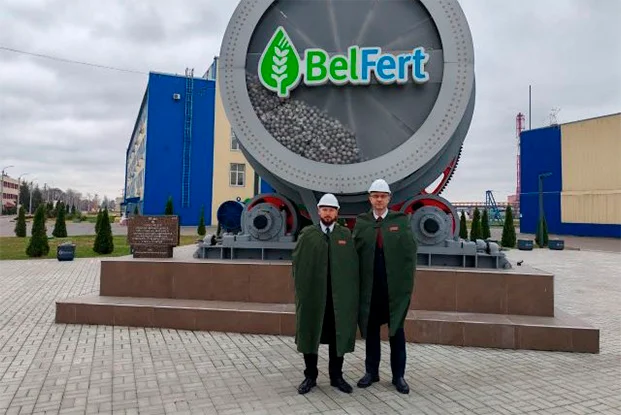Official talks between President of the Republic of Belarus Alexander Lukashenko and President of Mongolia Ukhnaagiin Khurelsukh took place in Ulaanbaatar today.
The two leaders discussed promising areas of cooperation to maximize the potential of Belarusian-Mongolian relations.
An expanded meeting of the heads of state took place in the hall named after Commander D. Sukhbaatar, during which the signing ceremony of the Treaty on Friendly Relations and Cooperation between the Republic of Belarus and Mongolia took place, as well as 14 more documents on cooperation between the two countries in various fields.
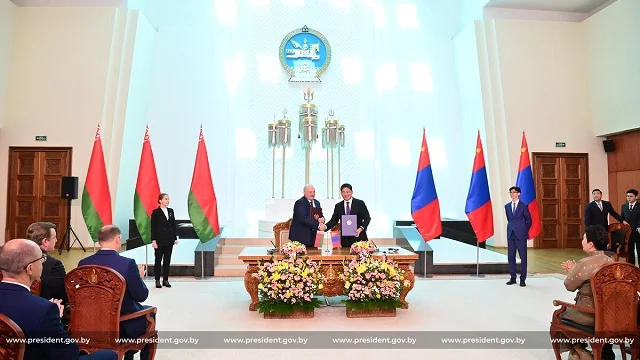
The Memorandum of cooperation in the field of environmental protection between the Ministry of Natural Resources and Environmental Protection of the Republic of Belarus and the Ministry of Environment and Tourism of Mongolia was signed by the head of the Belarusian Environmental Protection Agency Sergey Maslyak and the Minister of Environment and Tourism of Mongolia B.Bat-Erdene.
According to the signed document, cooperation will be carried out in the following areas:
reducing the negative anthropogenic impact on the environment in order to ensure favorable living conditions for the population, improve the state of the natural environment;
promoting the principles of a “green” economy, a closed-loop economy and a low-carbon economy;
mitigation of the effects of climate change and adaptation to its changes in various sectors of the economy;
protection of atmospheric air, including reduction of both emissions of pollutants and long-range transport of air pollutants;
protection of objects of the animal and plant world, especially rare and endangered species;
protection and management of protected areas (nature reserves, national parks, nature reserves, natural monuments);
development of ecological tourism within protected areas (nature reserves, national parks, nature reserves, natural monuments);
industrial waste management;
water resources management;
education and awareness in the field of nature and environmental protection, rational use of natural resources.
The Memorandum defines the forms of cooperation, among them: exchange of delegations, scientific, technical and other forms of environmental information in the field of implementation of national environmental legislation and international agreements, exchange of experience in the field of environmental protection, use of natural resources and climate change, as well as participation in seminars, conferences, workshops and meetings with representatives government agencies, academia, experts and other stakeholders.
